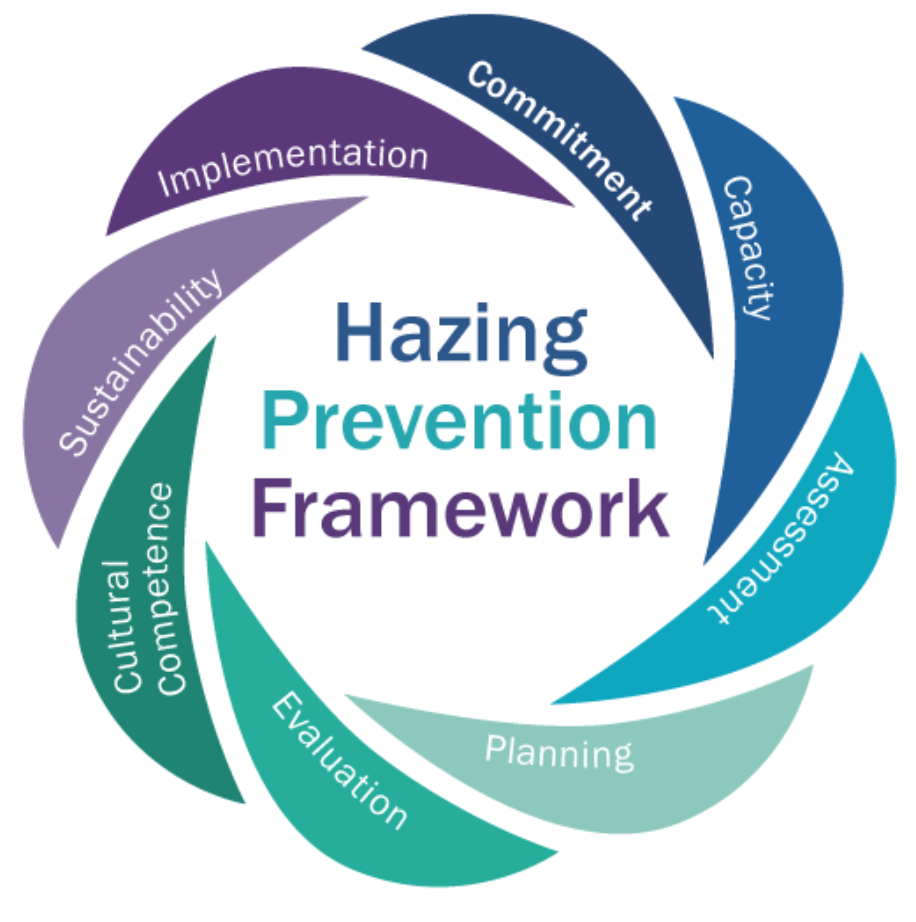Hazing is defined as any intentional, negligent or reckless action, or situation-which causes another pain, embarrassment, ridicule or harassment, regardless of the willingness of the participant. Such actions and situations include, but are not limited to the following:
- Forcing or requiring the drinking of alcohol or any other substance
- Forcing or requiring the eating of food or anything an individual refuses to eat
- Calisthenics (push-ups, sit-ups, jogging, runs, etc.)
- "Treeings" (tying someone up and throwing food or other substances on/at them)
- Physical harm (paddling, punching, slapping, etc.)
- Line-ups (yelling at people in any formation or harassing them)
- Forcing or requiring the theft of any property
- Road trips (dropping someone off to find his/her own way back)
- Scavenger hunts
- Limiting sleep
- Conducting activities, which do not allow adequate time for study (not allowing to go to class, missing group projects, etc.)
- Nudity at any time
- Running personal errands of the members (driving to class, cleaning their individual rooms, serving meals, picking up laundry, washing cars, etc.)
- Asking to be hazed
- Requiring the violation of Institute, Federal, State or local law
Not only is hazing incompatible with the ideals and traditions of fraternities and sororities but also violates all Council policies and regulations and Georgia state law. Please see the newly enacted Georgia state law regarding hazing to review further; this act is called the Max Gruver Act Anti-Hazing Act. We do not list all of this to scare or worry you, our aim is to make sure students, chapters, and families understand the scope of hazing. Many times it can be viewed as a ‘grey area’, but here at Georgia Tech, we do our best to view it as plainly as possible. Hazing and code of conduct violations can occur in any student organization and there are campus-wide policies regulating this. You can view a list of student organization disciplinary history on the Office of Student Integrity website. In our Greek community, we take steps to further educate and prevent any culture of hazing. Georgia Tech and every Greek organization have a firm stance against hazing as it is easily the most dangerous and destructive practice that an organization can take part in. Although many people automatically associate the term "hazing" with the idea of mistreating or abusing pledges or new members, any member can actually be a victim of hazing. Hazing can be defined as singling out an individual or group of people and forcing them to do something that is psychological, physical, or emotionally harmful or damaging. Potential members of fraternities and sororities are never forced to do anything they do not feel comfortable doing.
New fraternity and sorority members experience a period of orientation. During this time, new members will participate in weekly meetings to learn about the university and the fraternity/sorority, attend leadership retreats, participate in community service projects, as well as other activities designed to build friendships among the new members and the older members of the chapter. By doing so, these are the actions that can instill a sense of responsibility and commitment in the new members - not through acts of hazing.
In addition, the Office of Fraternity & Sorority Life provides continuing training and preventative programs on hazing to our community to prevent hazing from happening and to help new members identify if hazing is occurring and how to address it.
